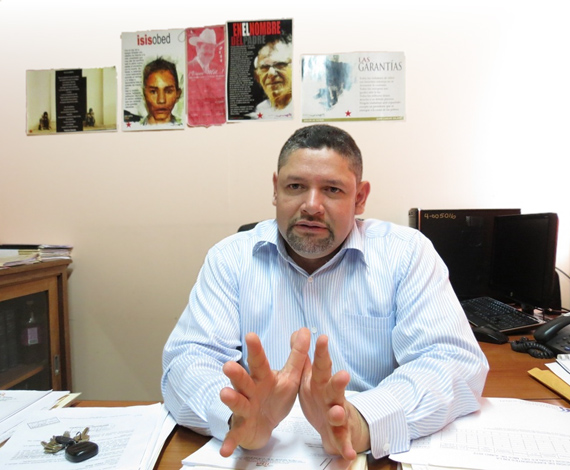|
SABMiller
makes the news once again in Latin America, this time in Honduras. Last May, the
National Agriculture Institute (INA), by resolution 050-2012, expropriated some
6,600 hectares of land held by the sugar mills Azucarera del Norte SA (Azunosa)
and Compañía Azucarera Hondureña SA (Cahsa), for failing to legally and duly
apply for an extension of the landholding ceiling established under the Agrarian
Reform Act. One of the companies affected by this decision is the transnational
corporation SABMiller, which in Honduras owns the Azunosa mill and the
Cervecería Hondureña SA brewery. SIREL spoke with Marco Ramiro Lobo, head of the
legal division at INA, to learn about the process leading up to this decision
and the reaction of the British-South African transnational corporation.
-How did the INA
arrive at the decision to expropriate the lands of these huge sugar mills?
-In November 2011 we
met with sugar industry companies and came to an agreement to inspect the lands
held by them.
All the
companies in the industry accepted this and in 2012 we began the process of
examining and regularizing the lands owned by the companies Azunosa and
Cahsa, whose mills are located in Valle de Sula.
Upon completing our
examination we found that they exceeded the landholding limits established by
the Agrarian Reform Act and did not have the authorizations necessary to hold
land above the mandatory ceilings established under this law.
-How large a
landholding are we talking about?
-In Valle de Sula, the
maximum ceiling for landholding is 200 hectares, however Azunosa owns a
little over 10,000 hectares, under an authorization to exceed the legal ceiling
in up to some 6,000 hectares. Cahsa was in a similar situation.
When we detected these
irregularities we immediately issued a resolution ordering the expropriation of
the hectares that exceeded the authorization to go above the ceiling - that is,
3,644 hectares in Azunosa’s case and 2,969 hectares in Cahsa’s
case. Pursuant to the Agrarian Reform Act, lands expropriated under this
provision are then assigned for agrarian reform purposes.
|
SABMiller is trying to stop rural families from going into these lands or
driving them out using private security guards who are heavily armed and have
turned into a private army. |
-Who owns these two
companies?
-Because they are
corporations they are under no obligation to reveal who their owners are, only
their administrators, who were found to be Honduran individuals.
However, when we
moved to enforce the expropriation, Azunosa appeared before the INA to file an
appeal, which was accompanied by a document that stated that Azunosa was owned
by the British-South African corporation SABMiller.
Moreover, Azunosa
representatives invoked a treaty between the United Kingdom and
Honduras, whereby Honduras undertook to protect British companies
that operated in the country.
-What was
SABMiller’s reaction?
-It reacted very
strongly. In the days following the expropriation several SABMiller officers
and British diplomats came to the INA, claiming that these lands could not be
expropriated because they were British-owned.
Ever since the
expropriation resolution was issued, SABMiller has been waging a media
campaign aimed at discrediting the INA and its officers, with the
argument that we are acting against foreign investment in the country, driving
investors away, generating instability and encouraging land occupations.
We have been strongly
pressured [to go back on our resolution] by the Honduran Private Business
Council (COHEP), the National Federation of Agriculture and Livestock
Producers (FENAGH) and the National Association of
Industrialists (ANDI).
SABMiller went as far as threatening to leave the country and take its
investment to El Salvador.
-Do you think this
resolution does in fact harm Honduras?
-Our position is that
the law must be applied in general and our actions have to follow the law,
regardless of who the land belongs to. In this case we’re applying relevant
provisions of the Agrarian Reform Act and the Agricultural Industry
Modernization Act.
-What stage is the
process of expropriation at?
-The resolution is now
before the National Agrarian Council (CNA), which is the INA’s
highest instance, and we’re waiting for it to rule.
-Meanwhile, hundreds
of rural families have “recovered” these lands and are being cleared out,
arrested or threatened with arrest…
-We’ve spoken with
these groups and we’ve explained that until there is a final resolution from the
CNA, these lands are not considered expropriated and can’t be assigned to
them.
What alarms us is that
SABMiller is trying to stop rural families from going into these lands or
driving them out using private security guards who are heavily armed and have
turned into a private army.
 |